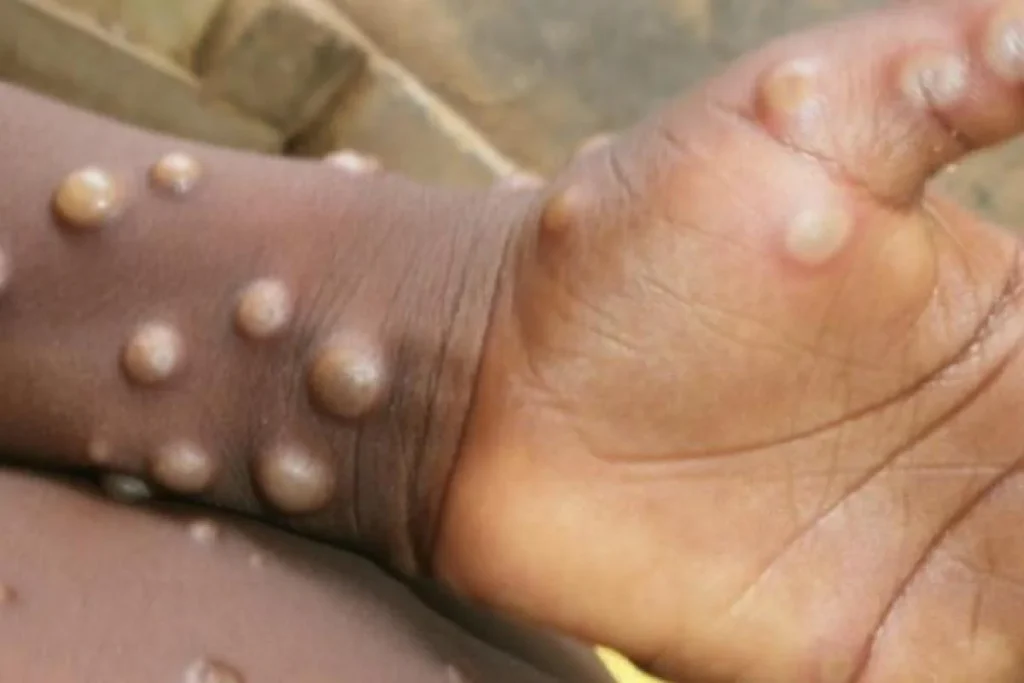
The Nigeria Centre for Disease Control and Prevention (NCDC) has reported a notable decline in suspected and confirmed Mpox cases across the country over the past four weeks.
The latest data, shared via the NCDC’s official website on Monday, indicates a significant drop in new cases.
According to the NCDC’s report, 51 new suspected Mpox cases were recorded between epidemiological (Epi) weeks 29-32 of 2024. This marks a substantial decrease from the 102 cases reported during the preceding four weeks (Epi weeks 25-28). The cases were distributed across 26 local government areas (LGAs) in 18 states.
Among these new suspected cases, two were confirmed positive: one case each was reported in Ebonyi and Enugu states. This represents a reduction from the seven confirmed cases recorded in the earlier period.
The NCDC has defined Mpox cases as follows:
– Suspected Case: An acute illness characterised by fever exceeding 38.3°C, intense headache, lymphadenopathy, back pain, myalgia and profound fatigue, followed one to three days later by a progressively developing rash that typically begins on the face and spreads to other body parts, including the soles of the feet and palms of the hands.
– Probable Case: A case that meets the clinical case definition but is not laboratory-confirmed and has an epidemiological link to a confirmed case.
– Confirmed Case: A case that is clinically compatible and laboratory-confirmed.
– Contact: Any person who has had direct or indirect contact with a confirmed case since the onset of symptoms, including contact with skin lesions, oral secretions, urine, feces, vomitus, blood, sexual contact or shared spaces.
In 2024, Mpox has been confirmed in 19 states and the Federal Capital Territory (FCT), affecting 30 LGAs. Since the resurgence of Mpox in Nigeria in September 2017, the country has reported a cumulative total of 4,603 suspected cases, with 1,125 confirmed cases (24.4 per cent) across 35 states and the FCT. The disease has disproportionately affected males, who account for approximately 70 per cent of confirmed cases. Seventeen deaths have been recorded since 2017.
The case fatality rate (CFR) for Mpox is calculated based on confirmed cases only. To curb the spread of Mpox, the NCDC has issued several preventive measures:
– Avoid close contact with individuals showing symptoms, particularly those with rashes or skin lesions.
– Practice good hand hygiene by regularly washing hands with soap and water or using an alcohol-based hand sanitiser.
– Wear protective gear, such as gloves and masks, when caring for someone with suspected or confirmed Mpox.
– Avoid contact with animals that may harbor the virus, such as rodents and primates, especially in areas known for Mpox outbreaks.
– Ensure that meat is thoroughly cooked before consumption.
Healthcare providers are advised to be vigilant for patients presenting with fever, rash, and other Mpox symptoms, especially if they have a history of travel to affected areas or contact with suspected cases. Providers should promptly isolate suspected cases to prevent transmission within healthcare settings and notify public health authorities immediately upon identifying a suspected case. Educating patients on the importance of early symptom reporting and adherence to isolation guidelines is also crucial.
The NCDC’s National Mpox Technical Working Group (TWG), composed of multi-sectoral and multi-partner teams, continues its efforts to monitor and respond to the Mpox outbreak nationwide. The public health agency urged Nigerians to remain vigilant and follow public health guidelines to prevent the spread of Mpox, particularly in affected states.
Person-to-person transmission of Mpox occurs when an individual comes into contact with the virus from an infected person or materials contaminated with the virus, such as clothing and bedding.
For more information or to report a suspected case, the public can contact the NCDC’s toll-free number: 6232.

